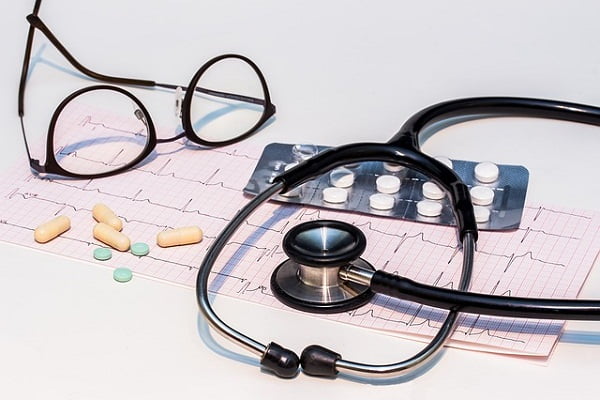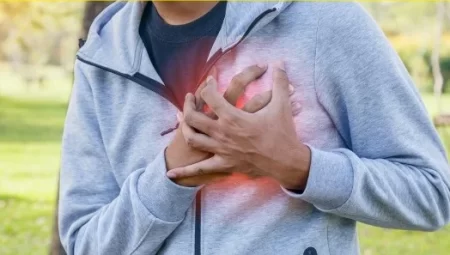How Is an Irregular Heartbeat (Arrhythmia) Diagnosed?
- Updated on: Jul 13, 2024
- 3 min Read
- Published on Apr 19, 2021


To diagnose a heart arrhythmia, your doctor will ask questions about your symptoms and medical history. He or she will perform a physical examination.
Your doctor will try to find out reasons that trigger arrhythmia. It could be a medical condition such as a coronary heart disease or hyperthyroidism, for example. Your doctor may recommend certain heart-monitoring and diagnostic tests.
Tests for diagnosis of arrhythmia
Various tests are available to monitor your heart rhythm and diagnose arrhythmia. It will begin with a physical examination. Based on the medical history and review of your symptoms, your doctor will use one or more of these tests.
The doctor will check your heart with a device called stethoscope and detect your pulse. Your blood pressure can be low or normal. Heart examining devices are often used to identify the irregularity in heart rhythm, such as these.
Holter monitor (this method is used for 24 hours)
A Holter monitor is a machine that constantly records the heart’s rhythms and is used for arrhythmia diagnosis. It is worn for about 24 – 48 hours during normal activity.
Electrodes are attached to your chest and connected to a small recording monitor. You can fetch the Holter monitor in a small pouch worn around your neck or waist. The monitor is a battery operated device.
For the duration you wear the monitor, it records the electrical activity of your heart. You have to keep a record of what activities you are doing while wearing the monitor, and how you feel.
After 24 – 48 hours, the doctor will check the records and visualize if there have been any irregular heart rhythms.
Event monitor
It is also known as loop recorder. This device is worn for 2 weeks or longer. This is a battery-powered portable device that you command to tape-record heart’s electrical activity (ECG) of your heart when you have symptoms of arrhythmia. Read about arrhythmia symptoms.
There are two types of event recorders:
- a loop memory monitor, and
- a symptom event monitor
Devices that record your ECG and other cardiac event recorders as you go about your daily routines are also known as ambulatory electrocardiographic monitors.
ECG (electrocardiogram)
It is a procedure of recording heart’s electrical activity over a span of time with the help of electrodes placed on the skin. These electrodes can mark very little electrical changes on the skin that emerge from the heart muscle’s electro physiologic pattern of depolarizing and repolarizing at the time of each heartbeat.
It is a very basically practiced cardiology test.
Other Tests
Sometimes, other tests may be used if your doctor doesn’t find an arrhythmia during those tests. Other examinations that can be done to visualize the functioning of heart are.
Coronary angiography
Coronary angiography is a methodology that utilizes contrast dye, basically containing iodine, and x ray pictures to diagnose hindrance in the coronary arteries that have arisen by plaque buildup.
Blockages hinder your heart from receiving oxygen and important nutrients. This methodology is practiced to diagnose coronary heart disease and coronary micro vascular disease after pain in the chest, unexpected cardiac arrest, or abnormal results from tests such as an electrocardiogram (EKG) of the heart or an exercise stress test.
It is important that you should check the blockages of arteries regularly because they can cause chest pain called angina, especially due to physical activities or stress, or when you get a heart attack.
If you have a heart attack, coronary angiography is the procedure that help your doctors plan your treatment accordingly. Read about treatment of arrhythmias.
Blood tests
Blood tests are used to check the levels of substances in your blood, such as potassium and magnesium. If the levels of these substances are not normal, it can increase your chances of developing an arrhythmia.
Echocardiography
It is a noninvasive test. A hand-held device called transducer is placed on your chest. It uses sound waves to produce images of your heart’s size, structure and motion.
Stress test
Some arrhythmias are triggered when your heart is working fast. During stress testing, your doctor will ask to exercise or to make your heart work hard and beat fast using medication.
Tilt table testing
Your doctor will do this test if you experienced fainting. You are made to lie on a table and your heart rate and blood pressure are monitored.
The table moves from a lying down to an upright position. The change in position may cause you to faint. Your doctor will observe how your heart and your nervous system respond to the change in position.
Electrophysiological testing
The test is done to assess serious arrhythmias.
Your doctor will insert a thin, flexible tube (catheter) with electrodes through or a vein in your groin or arm to your heart. The electrodes can map the electrical impulses through your heart.












